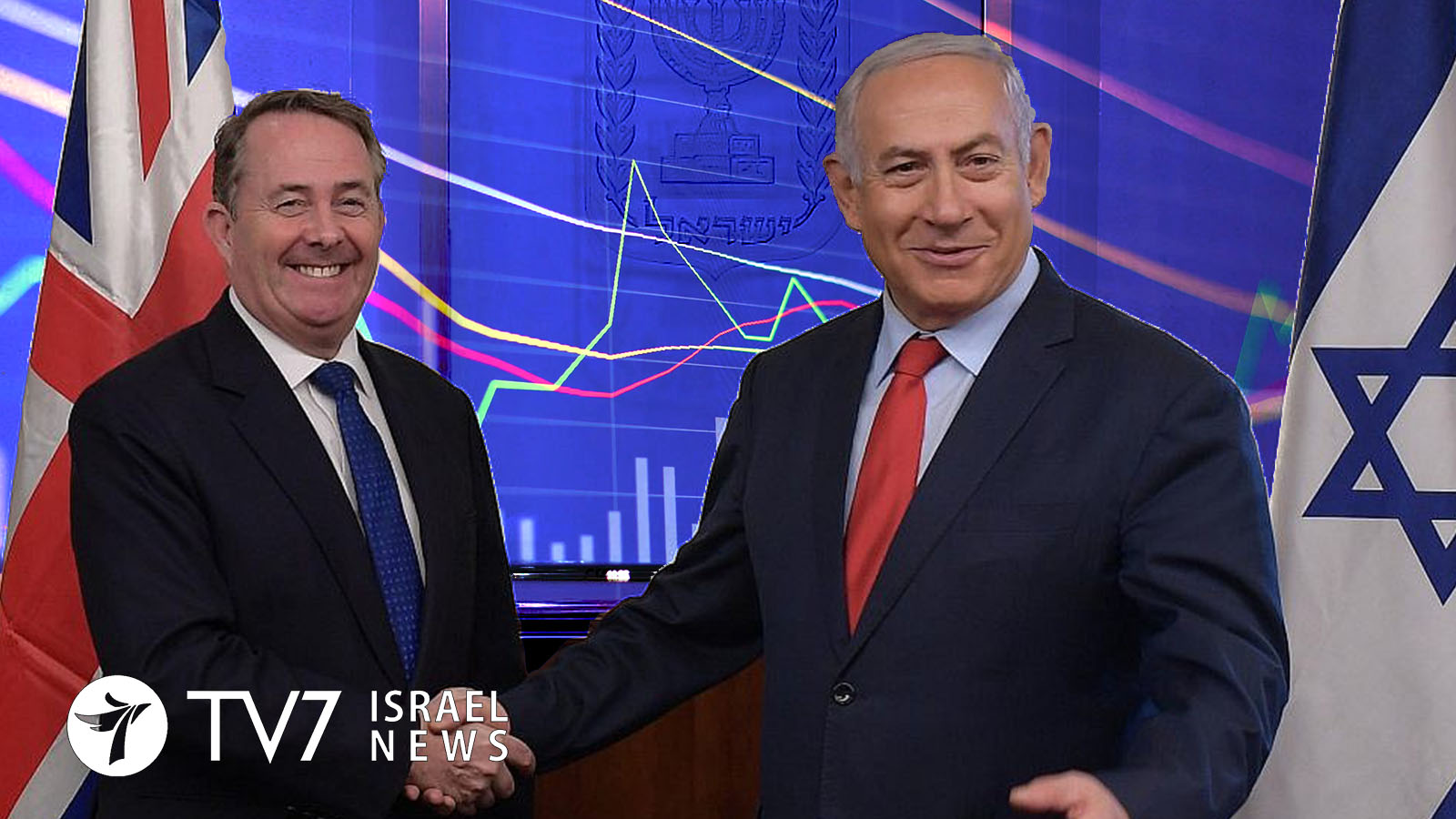While the United Kingdom faces a series of domestic and international challenges amid efforts to fulfill its 2016 Brexit referendum mandate, which demands an official departure from the European Union; alternative global markets are viewing the tough British-EU negotiations as a time of fiscal-instability that allows for new “attractive trade agreements” to emerge. Among those countries that have sought to benefit from the unpredictable economic situation is Israel. While the United Kingdom held the largest portion in economic trade among its European partners with the Jewish State, prior to and also in the aftermath of the 2016 referendum; in the first half of this year, Britain’s exports to Israel grew by an astounding 75 percent, compared to the same period of last year. While Jerusalem warmly welcomes the benefits of the growing economic relations with London, these relations are reciprocal, as the U.K.’s leadership vocally aspires to capitalize on its independence from the EU bloc, seeking to push its strong ties with non-EU-states even further. As a sign of these efforts, the British Secretary of State for International Trade Liam Fox has been traveling extensively, including to Israel’s capital, Jerusalem, where he met Prime Minister Benjamin Netanyahu, among others. The British Secretary of State for International Trade said, “As you know I’ve been a longstanding supporter of the bilateral relationship and this is an ongoing commitment. And as we leave the European Union and Britain takes up its place as an independent state of the WTO, we want to push our concept of free trade even further in a world where the sobering calls of protectionism is rising. Two free trade nations like ours need to make the case for global free trade because trade spreads prosperity. It underpins social cohesion. It supports political stability and that’s the collective building block of our security. So, it is genuinely a win-win. As Britain leaves the EU, we want to deepen our strategic relationships with those countries who share our values, who share our concepts of wealth creation, spreading prosperity and security and democracy and rule of law.” The Israeli leader, who strongly favors Israeli-British trade relations, underscored the close relations between London and Jerusalem. Netanyahu stressed that Israel is keen on expanding the mutual trade under any conditions that will emerge, following a U.K. – E.U. Brexit agreement, while signaling the United Kingdom as one of the most important trading partners of the Jewish State, around the world. According to Netanyahu, “You have been a great friend [of Israel] and a great champion of our friendship and our close relationship that I think will work in many ways economically in terms of security, in terms of protecting our common values. We want to make sure that we continue to expand our mutual trade under all conditions. I leave those conditions to you. But I think that there is a clear trajectory of increase in balanced trade between the two of us. We each get the benefits and it’s growing and growing and growing. Britain is in fact our largest trade partner in Europe, one of our most important trading partners in the world. We value the friendship. We value the prospects for the future. So, in that spirit I welcome you here.”
While the United Kingdom continually seeks to bolster its relations with Israel; its neighbor, Ireland has taken a series of measures that sever relations with the Jewish state. The latest measure took place yesterday, after the Irish Senate voted for a bill that seeks to boycott Israeli products that are manufactured on what it views as “disputed territories,” including the West Bank and East Jerusalem. Thirty Irish senators voted in favor of the bill while 12 opposed. Final approval of the bill in the Dublin Senate, which was sponsored by Senator Frances Black, requires further proceedings. It is important to underscore that anyone who breaks the proposed law and decides to purchase goods from disputed territories in Israel, could face up to five years in prison.
The Irish government voiced its disapproval of the bill and underscored in a statement that EU laws do not allow an EU member-state to decide for itself with which states it can have economic relations.
In response to the latest developments in Dublin, Israel’s Strategic Affairs Minister Gilad Erdan called the Irish senate’s vote a disgrace and said that the bill was tainted by anti-Semitism. He further accused the Irish Senate of providing tailwind to the deplorable anti-Israeli “boycott organizations that maintain ties with terror groups and cynically exploit the term ‘human rights’ for the purpose of spreading hatred and intensifying the (Israeli-Palestinian) conflict.” Minister Erdan further stressed that “If this bill is passed, (Israel) will act to expose all of its promoters and advancers and will also act to legally prevent it from being implemented in keeping with the international laws of commerce and in keeping with American legislation.”
It is important to point to the fact that Frances Black, the Irish senator who introduced the bill, signed in the past a letter that calls for a boycott of all Israeli goods and services, including those from territories that are not considered by the international community as “disputed.”
